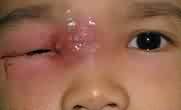What are sinuses?
Sinuses are air-filled spaces in the skull which is lines by membranes. These membranes will produce a thin secretion to trap dirt particles and keep the nasal passages moist.
What is sinusitis?
Sinusitis is a condition where infection or inflammation of the membranes that line the sinuses occurs. Sinusitis is common and happens even in young children. It is divided into 2 types:
- Acute sinusitis.
- Chronic sinusitis.
What agents cause sinusitis?
Infections are due to:
- Virus.
- Bacteria.
- Fungus.
Other agents of inflammation are:
- Allergy.
- Chemical irritants.
- Nasal polyp.
How does sinusitis present?
Signs and symptoms are varied and include :
- Blocked nose.
- Cough.
- Head or face ache.
- Soreness in the face.
- Persistent cold with yellow or green runny nose.
- A constant foul smell in the nose.
- Mild to high grade fever.
- Weakness.
- Tiredness.
- Cough which is worse at night with coloured mucous.
How can sinusitis become dangerous?
Acute sinusitis may lead to:
- Chronic sinusitis.
- Chronic headache.
- Abscess (pus formation and destruction).
- Maxillary sinus abscess.
- Frontal sinus abscess.
- Ethmoidal sinus abscess.
- Brain abscess.
- Eye – Subperiosteal abscess.

How can sinusitis be treated?
Consult your doctor. He may recommend or prescribe:
- Rest.
- Breathing-in steam from a bowl of hot water (where menthol may be added).
- Pain killer to reduce pain (paracetamol or ibuprofen).
- Decongestants to reduce the swelling in the nose and allow the sinuses to drain.
- Antibiotics if bacteria is the likely cause.
If you have chronic sinusitis, besides above treatment, other measures may be necessary. They are:
- Steroid nasal spray (to help reduce swelling and inflammation).
- Long term use of antihistamine.
- Endoscopic nasal surgery to wash and widen the drainage hole.
How does one prevent sinusitis?
The following measures may be helpful:
- Remove pets if there is associated allergy to animal dander, hair etc.
- Keep the air humid at home.
- Use an air-filtering vacuum cleaner.
- Stop smoking.
- Avoid alcohol.
- Use a decongestant spray or tablets before diving or swimming.
| Last reviewed | : | 26 April 2012 |
| Content Writer | : | Dr. Norrashidah Hj. Abd Wahab |
| : | Dr. Nor Mahani Harun | |
| Reviewer | : | Dr. Norzila bt. Mohamed Zainudin |







